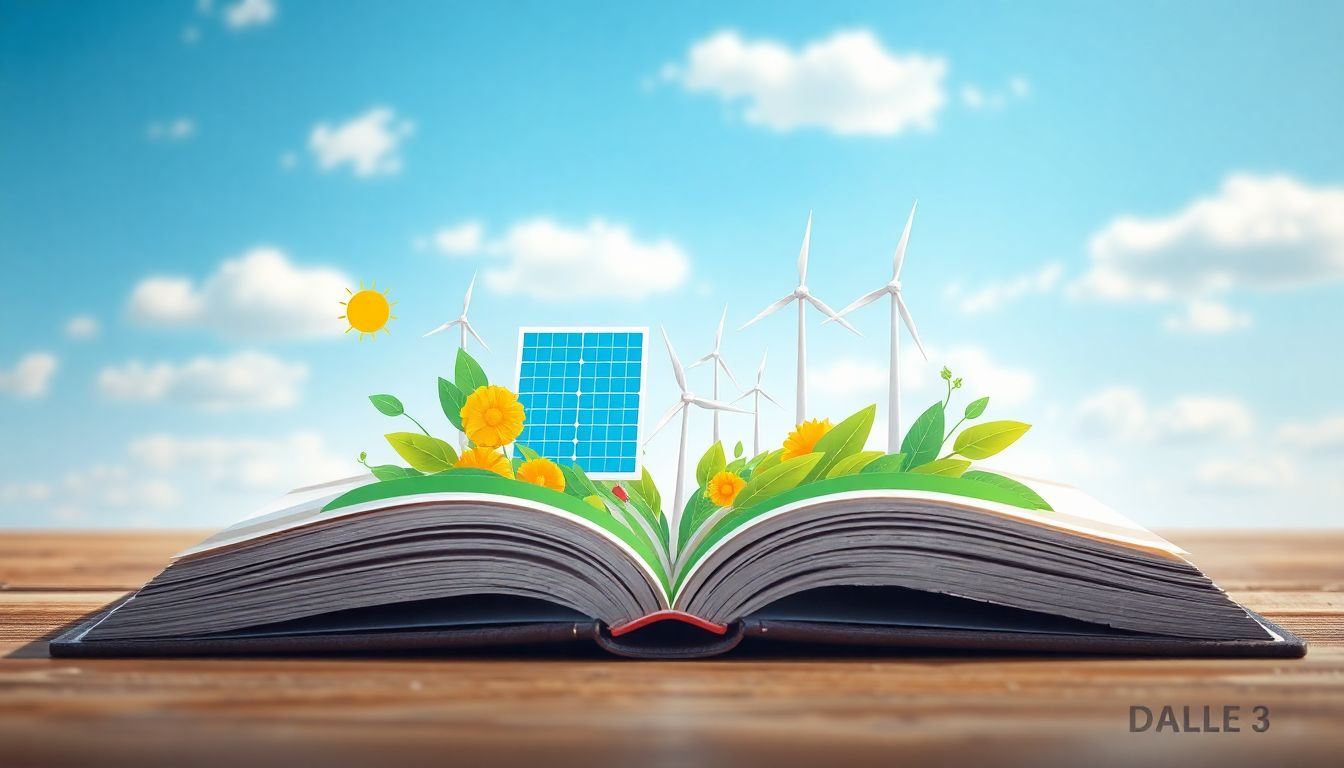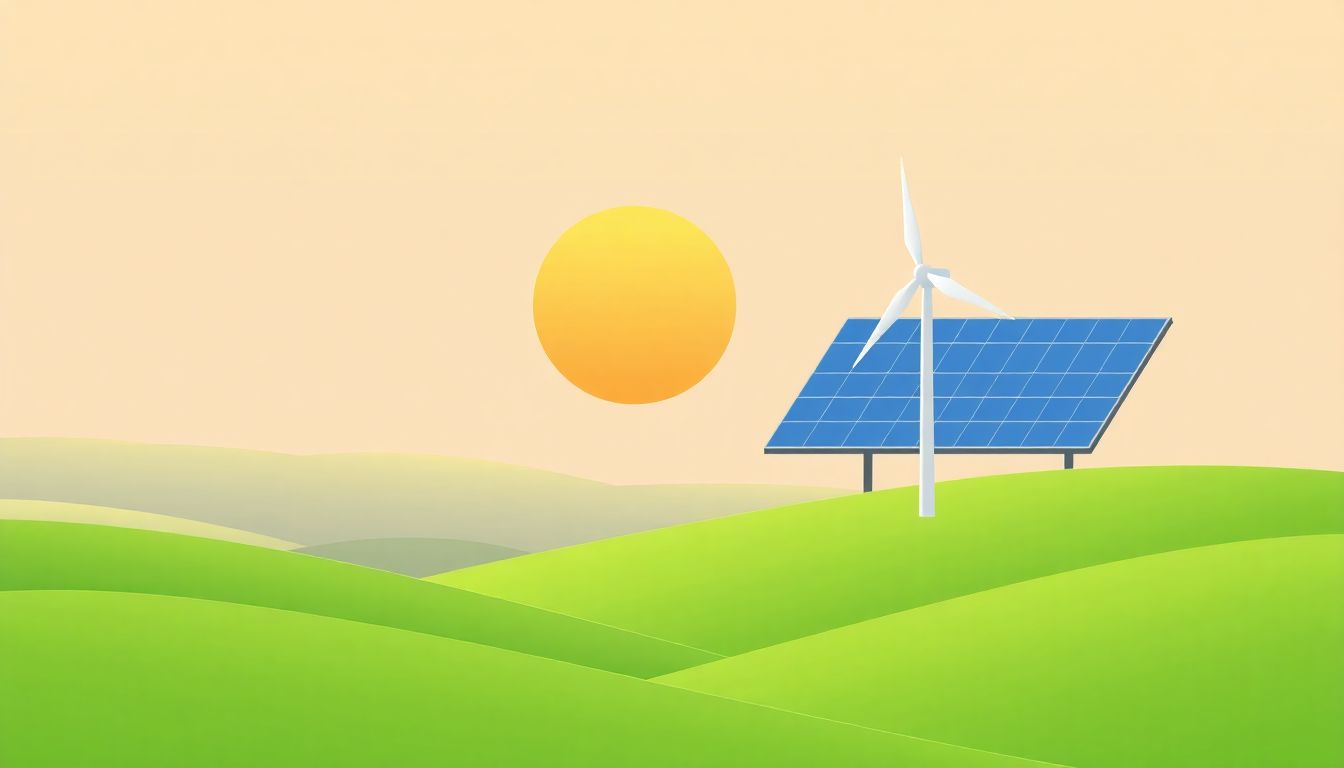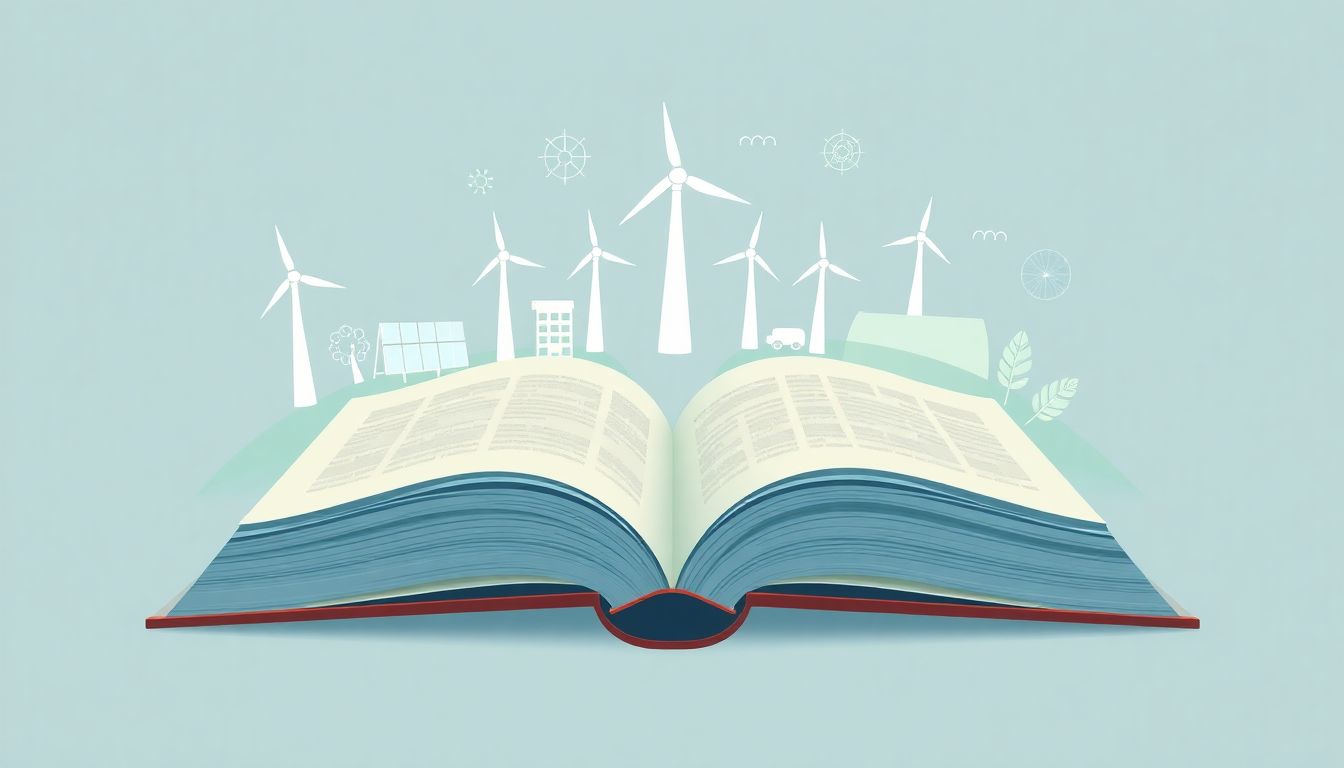Studying renewable resources can feel overwhelming at times, right? With so many concepts, types, and challenges to grasp, it’s easy to lose track of what really matters. You’re definitely not alone in this.
But here’s the good news: if you stick around, you’ll discover a treasure trove of prompts designed specifically to help deepen your understanding of renewable resources. These prompts make it easier to engage with the topic and spark insightful discussions.
From exploring key definitions to analyzing benefits and challenges, we’ll cover all bases. So, let’s jump in and turn that overwhelm into excitement about the future of renewable resources!
Key Takeaways
- Renewable resources, like solar and wind energy, can replenish naturally and play a vital role in sustainability.
- Effective use of ChatGPT involves crafting clear prompts to explore trends, benefits, and challenges in renewable energy.
- Understanding the environmental, economic, and social advantages of renewable resources can promote their wider adoption.
- Identifying challenges such as technology and policy issues is crucial for improving renewable resource management.
- Generating detailed case studies helps illustrate real-world applications and lessons from renewable energy initiatives.
- Evaluating renewable resource policies can highlight areas for improvement and support sustainable practices.
- Interactive learning activities can make studying renewable resources engaging for all ages.

Effective ChatGPT Prompts for Renewable Resource Studies
When studying renewable resources, ChatGPT can be an invaluable tool for generating insights and facilitating deeper understanding.
To effectively utilize this AI for your research, it’s important to craft precise prompts.
Here are some prompts you can use:
- “Generate a summary of the current state of renewable resource studies, including key trends and emerging technologies.”
- “List the major challenges facing renewable energy adoption globally and suggest solutions for each.”
- “Explain how generative AI can enhance research methodology in sustainability studies.”
- “Provide an analysis of the environmental and economic impacts of transitioning from fossil fuels to renewable resources.”
Understanding Renewable Resources: Key Concepts and Definitions
Renewable resources are natural resources that can be replenished naturally and sustainably over time.
This includes sources like solar energy, wind energy, geothermal energy, and biomass, all of which have distinct characteristics and uses.
Understanding terms like “sustainability,” “clean energy,” and “ecological impact” is crucial in this field.
Here are some helpful prompts:
- “Define renewable resources and their importance in combating climate change.”
- “Explain the concept of sustainability in the context of renewable energy.”
- “Discuss how renewable resources contribute to ecological balance and environmental health.”
- “Provide real-world examples of how renewable resources are being implemented in urban planning.”
Common Types of Renewable Resources to Study
There are several significant types of renewable resources that are worth studying in-depth.
Solar energy is harnessed from sunlight using solar panels.
Wind energy captures the kinetic energy of wind through turbines.
Hydroelectric power utilizes water flow to generate electricity.
Other resources include geothermal energy, derived from heat within the Earth, and biomass, which comes from organic materials.
Here are some useful prompts to explore these types:
- “List and explain the different types of renewable resources available for energy generation.”
- “Compare solar and wind energy in terms of efficiency, cost, and environmental impact.”
- “Discuss the advantages and disadvantages of using biomass as a renewable resource.”
- “Evaluate the potential of geothermal energy in reducing dependency on fossil fuels.”
Prompts for Analyzing the Benefits of Renewable Resources
Renewable resources offer numerous benefits, from environmental protection to economic advantages.
They reduce greenhouse gas emissions, support job creation, and provide energy security.
Understanding these benefits can help promote wider adoption of renewable technologies.
Try these prompts to analyze such benefits:
- “Outline the environmental benefits of switching from non-renewable to renewable energy sources.”
- “Discuss the economic impacts of renewable energy on local communities and job markets.”
- “Analyze the social implications of widespread renewable energy implementation.”
- “Provide case studies of countries that have successfully integrated renewable resources and the benefits they’ve experienced.”

Prompts for Discussing Challenges in Renewable Resource Management
Managing renewable resources comes with a unique set of challenges.
These challenges can range from technological limitations to policy-related obstacles.
It’s crucial to identify and address these issues to improve resource management effectively.
Here are some prompts to guide your discussions on these challenges:
- “Identify and explain the top three challenges to the widespread adoption of renewable energy.”
- “Discuss the role of government policies in facilitating or hindering renewable resource management.”
- “Assess the technological barriers that limit the effectiveness of renewable resource technologies.”
- “Explore the social challenges related to community acceptance of renewable energy projects.”
- “Evaluate how climate change impacts the management of renewable resources.”
Using ChatGPT to Generate Case Studies on Renewable Resources
Case studies are essential for understanding real-world applications of renewable resources.
They provide insights into successful implementations and highlight lessons learned.
Using ChatGPT can help you generate detailed and specific case studies quickly.
Here are some prompts to get you started:
- “Create a case study on a successful solar energy initiative in a specific region.”
- “Analyze the impact of wind farms on local economies using a case study approach.”
- “Generate a case study detailing the transition from fossil fuels to renewable resources in a major city.”
- “Evaluate a global country’s renewable energy policy through case study analysis.”
- “Summarize a case study of biomass energy use in agriculture, including challenges and benefits.”
Prompts for Evaluating Renewable Resource Policies and Regulations
Understanding policies and regulations is vital for effective renewable resource management.
These frameworks dictate how resources can be utilized and encourage sustainable practices.
Evaluating these policies can uncover strengths and identify areas for improvement.
Here are some prompts to analyze renewable resource policies effectively:
- “Evaluate the effectiveness of current renewable energy policies in your country.”
- “Discuss the impact of international agreements on national renewable resource regulations.”
- “Analyze how local laws can support or undermine renewable energy initiatives.”
- “Examine the role of financial incentives in promoting renewable resource projects.”
- “Provide a comparative analysis of renewable energy policies between two countries.”
Creating Interactive Learning Activities with ChatGPT Prompts
Interactive learning activities can make studying renewable resources engaging and effective.
Using ChatGPT, you can create fun and educational activities for learners of all ages.
Here are some prompts to design interactive learning experiences:
- “Develop a quiz on the benefits of renewable resources and their impacts.”
- “Create a role-playing scenario for students to debate the pros and cons of different energy sources.”
- “Design an interactive timeline showcasing major milestones in renewable energy advancements.”
- “Generate a project outline for a group activity focused on a local renewable energy initiative.”
- “Create a flashcard set covering key terms and concepts related to renewable resources.”

How to Use ChatGPT for Conducting Research on Renewable Resources
Using ChatGPT for conducting research on renewable resources can simplify your workflow and enhance data collection.
The first step is to clarify your research question or topic of interest.
Once you have that, you can use specific prompts to gather information, analyze existing literature, and explore new ideas.
Here are some effective prompts:
- “Summarize recent studies on solar energy advancements and their implications for the future.”
- “Provide a list of scholarly articles discussing the economic impacts of wind energy installations.”
- “Create an annotated bibliography of research papers related to biomass utilization in agriculture.”
- “Outline the key methodologies used in recent renewable resource studies.”
- “Generate a comprehensive research proposal on the role of hydroelectric power in sustainable development.”
Prompts for Comparing Renewable Resources with Non-Renewable Resources
When comparing renewable resources to non-renewable ones, it’s essential to examine their impacts on the environment, economy, and society.
This allows for a clearer understanding of their benefits and drawbacks.
Here are some prompts to assist in making these comparisons:
- “Compose a detailed comparison of the lifecycle impacts of solar energy and coal energy.”
- “Analyze the economic costs associated with transitioning from natural gas to wind energy.”
- “Discuss the environmental implications of nuclear energy versus geothermal energy.”
- “Evaluate how renewable resources can reduce dependency on fossil fuels in the transportation sector.”
- “Create a pros and cons list comparing energy efficiency between renewable and non-renewable energy sources.”
Future Trends in Renewable Resources: ChatGPT Prompts for Predictions
Exploring future trends in renewable resources helps anticipate innovations and prepare for upcoming changes in the energy landscape.
Using ChatGPT can provide you with insightful forecasts and analysis to better understand these trends.
Here are some valuable prompts for discussing future predictions:
- “Predict how advances in battery technology will influence the adoption of renewable energy sources.”
- “Forecast the impact of government policies on solar energy efficiency in the next decade.”
- “Discuss potential breakthroughs in wind turbine technology and their implications for energy generation.”
- “Analyze how consumer behavior might change in response to renewable energy marketing trends.”
- “Generate predictions on the integration of artificial intelligence in optimizing renewable energy sources.”
FAQs
Renewable resources are natural resources that can be replenished naturally over time, such as solar energy, wind energy, and biomass. They provide sustainable alternatives to fossil fuels and help reduce environmental impact.
ChatGPT can generate insightful prompts, provide effective analyses, create case studies, and compare renewable with non-renewable resources. It serves as a tool for brainstorming and organizing thoughts in renewable resource research.
Studying renewable resources promotes energy sustainability, reduces greenhouse gas emissions, and fosters environmental conservation. It also drives innovation and creates economic opportunities in green technology and sustainable practices.
Challenges in renewable resource management include technological limitations, high initial costs, regulatory hurdles, and variability in resource availability. Balancing these factors is essential for effective and sustainable management.
